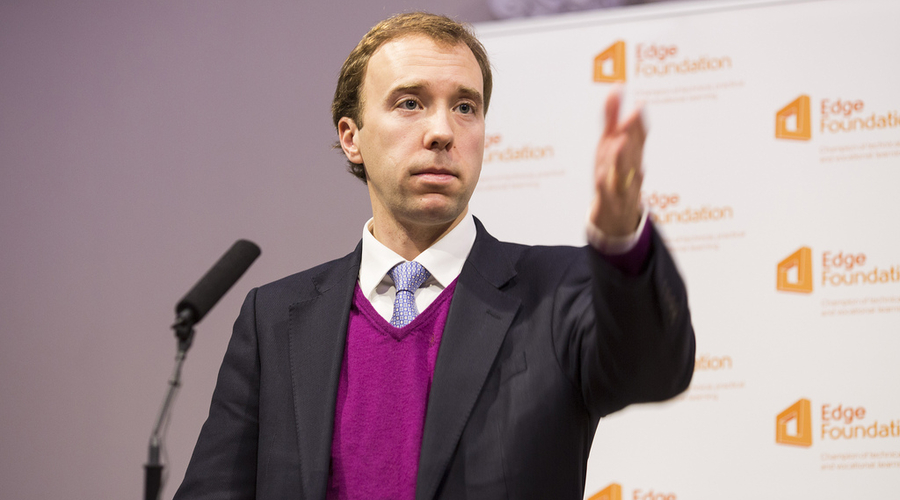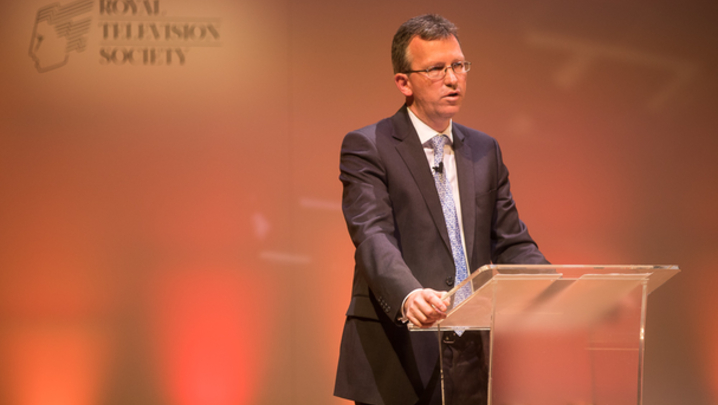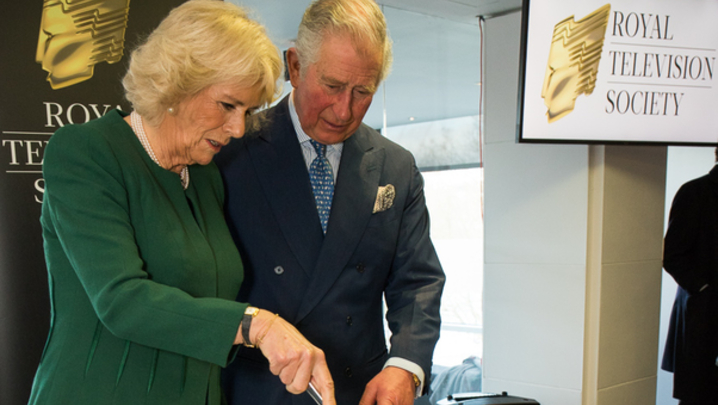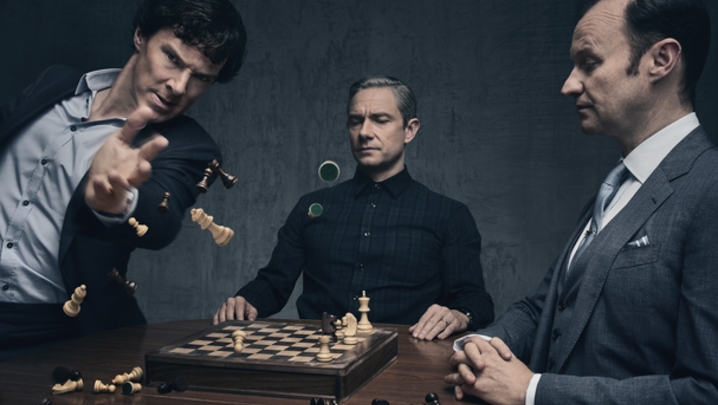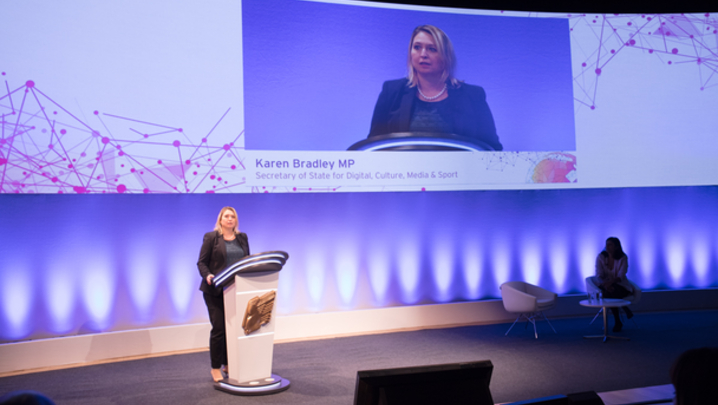Matt Hancock, Minister for Digital and Culture gave a keynote address at the RTS London Conference 2016. You can read his speech below:
It is a pleasure to speak at this Royal Television Society conference - and to take up the post as Minister responsible for our most vital, cherished and thriving sector.
I’ve always thought that there is a risk that because people so enjoy what you make, they might take for granted the craft - the sheer industry - behind it. When you entertain, when people are laughing, or crying cathartic tears, or cheering on a favourite contestant, they don’t always care to be reminded that for some people - for you - this is work. Complex, demanding work.
I do not take your work for granted. And in Government we know that you’re exceptionally good at what you do.
Throughout its history, TV has been one of the UK’s greatest success stories. In recent years it has grown at twice the rate of the rest of our economy, and annually generates over £13 billion in revenue. Of that, the growing independent production sector now contributes £3 billion a year.
More than just the economic statistics, your work really matters. You are one of the UK’s best shop windows, introducing the world to our culture, telling them who we are as a nation. That we are hugely creative, inquisitive, innovative, silly when we want to be, daring. The export market for finished programmes, international commissions and format sales has more than doubled in size over the past decade to over a billion today.
You and your programmes are among our most powerful cultural ambassadors. Kids in South Korea queue to meet Peter Capaldi. Crowds in New York scream for Benedict Cumberbatch. And all over the world people make their arms into an X and tell Simon Cowell “No one wants this more than me.” That is soft power in action. And it is great for the UK.
But of course this is also a time of great change. Digital technology is revolutionising viewing habits. And it is primarily these challenges - and these opportunities - I want to talk about today.
Traditional TV viewing, in front of the set, now accounts for only around two thirds of the nation’s viewing time. It’s perhaps ironic that as we watch the families on Gogglebox face a traditional screen many of us will do so on phones, laptops or tablets.
And what we watch is changing. 72% of us now regularly watch short-form videos, on YouTube and elsewhere. James Corden’s car-pool karaoke, that Calvin Harris video featuring Rihanna, Hillary Clinton’s latest spot ad, even back-copies of PMQs - everyone’s taste is catered for, mine included.
And if we want more conventional length programmes we won’t necessarily turn to the conventional channels. Netflix now reaches 4.4 million households in the UK, and Amazon Prime over a million.
These figures may sound unsettling - disruptive to the way you’ve always worked.
But let’s bear in mind too that some of our greatest, most creative TV shows were made when the medium was relatively young. Series like Monty Python or the plays of Dennis Potter were able to experiment so freely, so successfully, because no one was yet clear what the rules were. Some of those brilliant, innovative shows, like Doctor Who and Coronation Street, are still with us today so it’s easy to forget just how radical they once were.
The exciting thing about now is: the toys are new again. The rules are being rewritten. This can and should be another Golden Age of creativity.
And the Government will support you in making it so.
I’ve set out three core priorities for all the creative industries, and they are no less important in TV than the others.
"The rules are being rewritten. This can and should be another Golden Age of creativity."
The first is backing success.
In all we do, we want to back success where we find it; to build on and strengthen Britain’s creativity.
So we have introduced new TV tax breaks. And they are working. In the first full year of the TV tax credit, nearly £400 million was invested in high-end television programmes, a further £52 million in animation, and £35 million in video games.
Amid this constant change, Public Service Broadcasting remains hugely valued in most viewers’ lives. In a typical week, figures show 84% of us will watch Public Service television. And the vast majority - 73% of viewers, according to a recent poll - believe it is doing a fine job.
Following one of the largest ever consultation exercises in the UK, the new draft BBC Charter establishes the Corporation’s funding, its governance, its mission and purpose, its scale and its scope for the next 11 years, beyond the life of this Parliament and the next.
The new draft Charter secures the BBC’s independence by taking the next Charter review out of the electoral cycle and by creating a BBC Board that has fair and transparent appointments and the majority of whose members are appointed by the BBC itself.
And by enhancing its distinctiveness, accountability, transparency and efficiency it will make sure the BBC continues to thrive. New powers for Ofcom and the NAO, new requirements on competitive tendering, partnership and market impact, and new transparency duties on pay and genre spend are all important elements of the draft Charter reform package. And of course the BBC will enjoy an inflation-linked increase to the licence fee for the next 5 years.
The Charter also firmly embeds the BBC’s historic duty to be impartial. For liberal democracy to flourish, serious debate needs to be anchored in fact. And with a proliferation of media voices the role for our trusted Public Service Broadcasters here is ever more critical.
Of course public service broadcasting is only part of the mix. The UK has a vibrant multichannel sector delivering over 500 channels via free and pay platforms.
Over half of spend on content is now from these alternative sources. And, counting investment in Film and Sport, the UK multichannel sector spent over £3 billion on content in 2015. On original UK content multichannels are investing £800 million.
These channels - and their location in the UK - bring significant benefits to our economy, including over 12,000 jobs and around £4bn of annual gross value added.
The prestige of the UK as the number one broadcasting hub in Europe is something that I’m enormously proud of and which brings very significant benefits to the UK creative sector. I know many of you worry about the impact of Brexit.
The EU referendum highlighted the need to bring this country together, and that can only be achieved by reaching out to - by directly addressing - all its constituent parts. You and your industry have that power.
And your role in defining how we see ourselves as a nation – and how we are seen around the world – is more important than perhaps any other sector’s. Throughout her history Britain has succeeded best when we’ve been open, positive, engaged, and looking outwards, towards the whole world. You can help define Britain’s place in the world today, and bring the people of Britain along with us.
On the specifics, we absolutely get the importance of: the Country of Origin principle; continuation of UK content’s designation as European work; access to skilled labour; to funding and to the central importance of the broadcasting industry.
And we are working on those things as we prepare to negotiate Britain’s exit.
We want to celebrate and strengthen our pre-eminent role in broadcasting as we move forward. UK success is here to stay. You can take it from me that UK success is here to stay.
That brings me to my second principle: expanding access.
It is a central objective of this Government that everyone, from every background, should have equal chance to succeed, equal chance to access arts and culture. In TV, you are already bringing culture - high-brow, middle-brow, resolutely low-brow, it really doesn’t matter - into homes up and down the land.
And you do it every day of the year.
But just as your audience is wide and diverse, so should your industry be. While there is already a push for greater diversity on-screen, and we will continue to support that, it must be matched by a similar drive behind the scenes.
Among writers, directors, commissioners - executives. Ideally, this room would echo to a range of accents, from all parts of the country, from every ethnicity, from every class and gender. Does it yet? I challenge you. The BBC move to Salford has been a triumph, and it is one that I would like to see other broadcasters follow in terms of spreading people, production and investment beyond London.
On diversity and social media there is already much good practice.
I was delighted to launch Diamond in August and sure it will go from strength to strength
While there is already a push for greater diversity on-screen, and we will continue to support that, it must be matched by a similar drive behind the scenes.
The BBC is on track to meet their 2017 goal of over 14 per cent BAME representation on and off screen.
ITV have achieved 14 per cent on-screen BAME representation across all channels.
85 per cent of Channel 4’s commissions now meet their guidelines on diversity.
And Sky has achieved its aim of 20 per cent on screen and writing talent from BAME backgrounds
New technology and distribution is making it easier to break through. But does commissioning reflect the diversity of our modern nation? On gender, disability, sexual identity, and ethnicity, yes, you are beginning to make strides. But what of social and geographic diversity?
I ask you, and I hold you to a higher standard, because a popular, demotic industry like yours, with such a wide and diverse audience, should be leading the way.
So reflect the country you serve. Thrive on Britain’s diversity. Look to opportunities beyond the nearest horizon.
Show by example that people from any walk of life can get ahead if they’ve got talent.
My third priority is to drive the opportunities of digital syntheses.
There is a very good reason I’m the Minister for Digital and Culture. The synergy between art and technology has never been more important. This link: between our creative and cultural assets, and the digital platforms and technology that deliver it, is, in my profound belief, how Britain will pay her way in the twenty-first century
This sector is perhaps the best example of what I’m talking about: the pipes and wires of digital delivery meet the beauty and creative genius of the TV sector. Convergence has delivered exciting, disruptive new business models and programme formats like the challenge of multi platform media.
I’m very clear on our job.
If a Wikipedia page is slightly slow to load, it probably won’t greatly try the patience. If a programme we’re engrossed in begins to buffer it can feel like the end of the world. And all the tension you’ve carefully crafted - the gags you’ve expertly timed - are ruined.
So I’m absolutely determined the UK’s digital infrastructure must-be world-leading. We have substantially invested in our digital communications infrastructure - both for mobile and fixed connectivity - with three quarters of a billion pounds from central government. We are rolling out superfast broadband across as many homes and businesses as possible. We have already achieved 90% coverage. We are on track to reach 95% by the end of next year, and we are pushing fibre too.
It will get easier and quicker, year on year, for people to access the brilliant shows you make.
And digital needs content. That nexus between technology and culture is our future economy’s sweet spot, and it is at that nexus that your industry has always lived, and where it must continue to thrive.
Yes there are challenges but there are huge opportunities to reach more people, to open more minds, embrace new technology to educate, excite and entertain like never before. That is a passion we share and in doing so I will be at your side.
-------
Matt Hancock is the Minister for Digital and Culture in the Department of Culture, Media and Sport.


